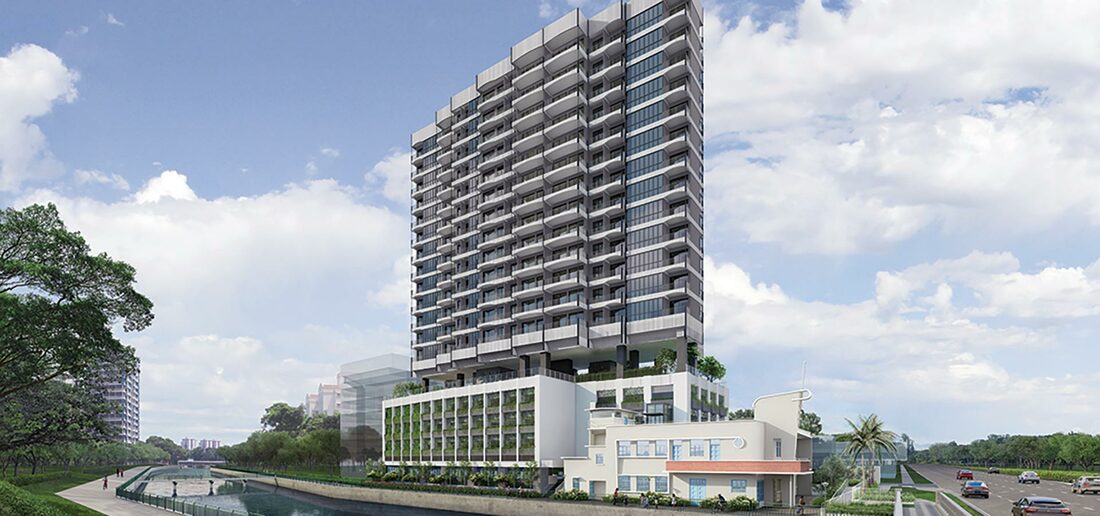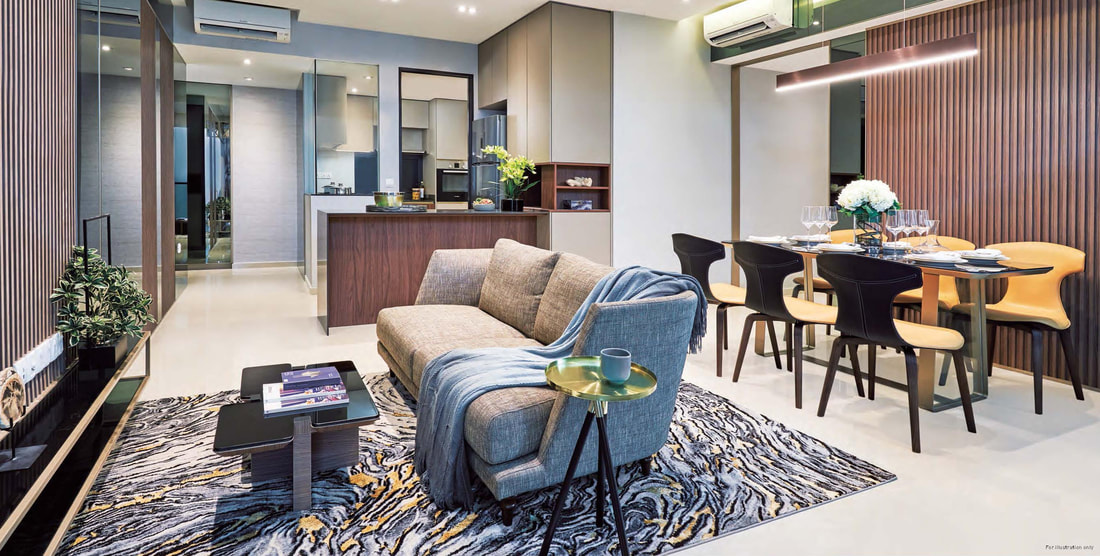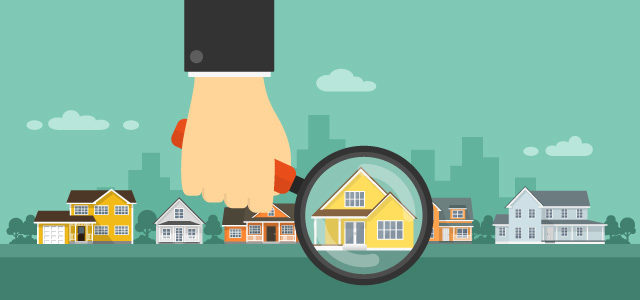The Real Estate Developers' Association of Singapore (Redas) has given reasons why some of the property cooling measures should be revised, and at the same time called for more dialogue between the Government and property stakeholders. Speaking at the association's spring festival lunch at Shangri-La Hotel, Redas's new president Chia Ngiang Hong said there could be some flexibility in the timeframe needed to complete the sales of projects when it comes to the remissible additional buyers' stamp duty (ABSD) for developers. Last July's cooling measures jacked up the remissible ABSD for residential developers to 25 per cent, from 15 per cent previously. If a developer fails to complete their residential project as well as sell all its units within five years of acquiring the site, it will have to cough up the 25 per cent ABSD with interest. (Developers now also have to pay a 5 per cent non-remissible ABSD when they buy residential development sites.)
Mr Chia said this has "pushed all developers to exhaust their inventory at around the same time, and could partly account for the land price escalation in 2017 and 2018 because everyone basically ran out of inventory at the same time". Without a review of the ABSD, this situation could repeat itself in four to five years, he warned. Mr Chia also said it may be timely to re-evaluate the loan-to-value (LTV) ratio for first-time property purchasers in order to allow young Singaporeans to own a private home, and review the timing of the upfront payment of the ABSD for upgraders.
Singaporeans are loving the luxury homes that foreigners cannot buy
Some of Singapore's most desirable houses come with a catch: only locals can own them. That foreign buyers - notably from China - who for years helped drive demand for luxury homes, cannot buy these dwellings, has not dented their appeal. Their scarcity and the exclusivity they confer have pushed prices of the homes - known as Good Class Bungalows, or GCBs - to record highs, even as the broader property market cools. Just about 2,500 GCBs dot the city-state, ranging from colonial-era houses to architect-designed modern homes with cantilevered verandas, infinity pools and expansive landscaped gardens, a world away from the high-rise condos most Singaporeans call home
In the heart of Singapore, there is a sprawling, vacant plot of private land 30 times the size of The White House. Just down the road from the US embassy and bordering condominiums worth as much as S$4.5 million per unit, the swathe of untended jungle hides the remains of two abandoned palaces and would be worth a cool S$4.7 billion if sold for development, according to one estimate. In a city where almost 8,000 people fit into each square km and real estate prices are among the world's highest, it is one of the greatest urban anachronisms in Asia. The 34-year-old Crown Prince of Johor, Tunku Ismail Sultan Ibrahim, is the registered owner of the 210,875 sq m plot, which lies in the former Tyersall Park, next to the Botanic Gardens. Inside, ravaged by fire and decay, are the ruins of Istana Woodneuk, the palace built by his ancestors in the late 19th century. The plot owned by the Sultans of Johor was once larger, but has gradually reduced as the Singapore government acquired land to extend the Botanic Gardens, a Unesco World Heritage site. The Crown Prince, however, will not be able to cash in on his Singapore land any time soon, even if he wanted to. The undeveloped area is zoned for "special use of green space", meaning that development for other purposes - such as residential or commercial - is restricted. Were that to change - the land does sit in one of Singapore's most desirable residential districts - it could be worth at least S$4.7 billion, The most expensive residence to change hands in Singapore over the past year was a so-called good class bungalow (luxury landed houses that are off limits to foreigners) also near the Botanic Gardens for S$105.3 million.
Don't expect quick rebound in private home prices: CapitaLand
Private home prices in Singapore are unlikely to stage a rapid rebound after the Government imposed further property curbs in mid-2018, the finance chief of the country's largest developer said. "If we see a 5 per cent increase in home prices, I think that will be a pretty good year for the Singapore residential market," CapitaLand chief financial officer Andrew Lim said in an interview "The severity and extent of the measures in July caught us by surprise," he added. Private home prices posted their first decline in six quarters in the last three months of last year. In July, the Government imposed higher stamp duties and tougher loan-to-value rules to choke off a sudden bout of exuberance. The earlier resurgence had been marked by aggressive land bids from developers and an explosion in collective sales, where apartment owners band together to sell entire buildings. CityDev gears up for series of launches with eye to replenishing land bank As City Developments Limited (CDL) gears up for its slew of residential project launches, it's also taken a liking to some government land sales (GLS) sites later this year. The property group also won't rule out occasional en bloc deals. This year, CDL will launch high-end projects Amber Park, Haus on Handy and Boulevard 88 and two other projects: Sumang Walk EC and the mid-tier Sengkang Central. The previous Q4 had included revenue contribution of The Brownstone EC in its entirety when it was completed in October in 2017, as well as Gramercy Park. 4Q18 revenue was recognised primarily from the projects New Futura, The Tapestry and Park Court Aoyama The Tower.








 RSS Feed
RSS Feed
